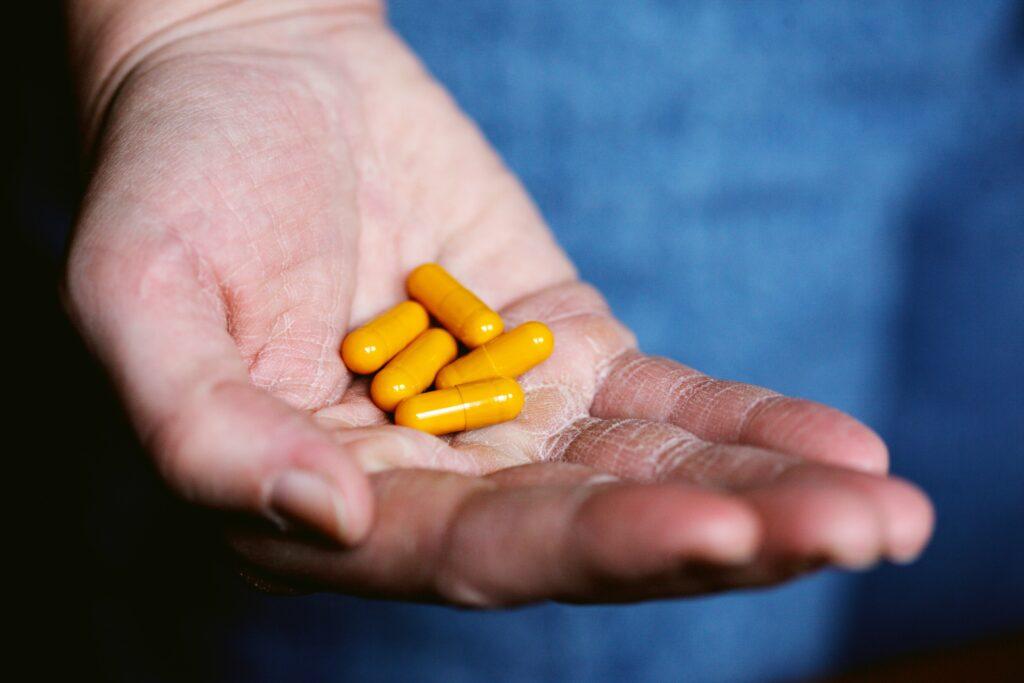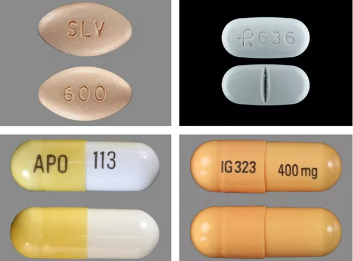What is Gabapentin Withdrawal?
Gabapentin withdrawal refers to symptoms and physical or psychological discomfort that can occur when an individual abruptly stops or significantly reduces their use of gabapentin, a medication commonly prescribed for conditions like epilepsy, neuropathic pain, and anxiety disorders. Withdrawal symptoms can vary in intensity and duration and may include anxiety, insomnia, restlessness, irritability, nausea, sweating, muscle pain, and cognitive difficulties.
The severity of withdrawal can be influenced by factors such as the dosage, duration of gabapentin use, and individual physiology. Proper management and gradual tapering under medical supervision are often recommended to minimize the potential discomfort and risks of gabapentin withdrawal.
Gabapentin Withdrawal Symptoms
Gabapentin withdrawal symptoms can vary from person to person, and their severity can depend on factors such as the dosage, duration of use, and individual physiology. Common gabapentin withdrawal symptoms include:
- Anxiety: Increased feelings of nervousness, restlessness, and unease.
- Insomnia: Difficulty falling or staying asleep, leading to disrupted sleep patterns.
- Restlessness: A sense of agitation or the inability to stay still.
- Irritability: Heightened sensitivity and quickly becoming annoyed or frustrated.
- Nausea: Feeling queasy or experiencing stomach discomfort.
- Sweating: Unusual or excessive sweating.
- Muscle pain: Aches, cramps, or generalized muscle discomfort.
- Cognitive difficulties: Focus, concentration, memory, or mental clarity.
- Headaches: Recurring or persistent headaches.
- Flu-like symptoms: Fatigue, feverishness, body aches, and malaise.
It’s important to note that individuals may experience a combination of these symptoms or additional symptoms not mentioned here. Consulting with a healthcare professional is crucial for proper management and support during gabapentin withdrawal.
Gabapentin Withdrawal Timeline
The timeline for gabapentin withdrawal can vary from person to person, and it is influenced by various factors, including the dosage, duration of use, and individual physiology. While there is no fixed duration for gabapentin withdrawal, the following is a general timeline that may give you an idea of what to expect:
- Within 12-24 hours: Some individuals may start experiencing early withdrawal symptoms shortly after their last dose. These symptoms can include anxiety, restlessness, and insomnia.
- Days 2-7: Withdrawal symptoms typically peak during this period. Anxiety, insomnia, irritability, muscle pain, and cognitive difficulties may intensify. Flu-like symptoms such as sweating, nausea, and headaches might also be present.
- Days 7-14: Symptoms may gradually improve during this phase. However, some individuals might still experience residual effects like lingering anxiety or insomnia.
- Weeks 2-4: Most withdrawal symptoms tend to subside within this timeframe. However, some individuals may still experience occasional mild symptoms, such as anxiety or sleep disturbances.
It’s important to note that these are approximate timeframes, and the duration and intensity of withdrawal symptoms can vary.
Additionally, some individuals may experience a longer withdrawal period, especially if they have been taking gabapentin for an extended duration or at high doses.
It’s advisable to consult with a healthcare professional who can provide personalized guidance and support throughout the gabapentin withdrawal process.

Skip To:
Learn More:
- Gabapentin Ruined My Life, Gabapentin Review Complaints, Gabapentin Addiction Signs & Side Effects
- Can You Snort Gabapentin?
- Can You Smoke Gabapentin?
- Prescription Pill Detox Program
- Prescription Drugs Addiction
- 10 Most Abused Prescription Drugs In The US
- Withdrawal Symptoms of Prescription Drugs
- Risks of Mixing Prescription Drugs With Alcohol
Get Help. Get Better. Get Your Life Back.
Searching for Accredited Drug and Alcohol Rehab Centers Near You?
Even if you have failed previously and relapsed, or are in the middle of a difficult crisis, we stand ready to support you. Our trusted behavioral health specialists will not give up on you. When you feel ready or just want someone to speak to about therapy alternatives to change your life call us. Even if we cannot assist you, we will lead you to wherever you can get support. There is no obligation. Call our hotline today.
(844) 597-1011Popular Gabapentin Withdrawal FAQs
-
Can You Withdraw From Gabapentin?
Yes, it is possible to experience withdrawal symptoms when discontinuing or significantly reducing the use of gabapentin. The severity and duration of withdrawal can vary depending on factors such as dosage, duration of use, and individual physiology. It is recommended to consult with a healthcare professional for guidance on tapering off gabapentin to minimize potential withdrawal effects.
-
Is Withdrawal From Gabapentin Dangerous?
While gabapentin withdrawal is generally considered safe, it can be uncomfortable and challenging for some individuals. The symptoms can range from mild to severe, and proper management under medical supervision is advised to ensure a safe and comfortable withdrawal process. Abrupt discontinuation of high doses or prolonged use of gabapentin without medical guidance may increase the risk of more significant withdrawal effects.
-
Is Gabapentin For Opiate Withdrawal?
Gabapentin is sometimes prescribed off-label to help manage symptoms associated with opiate withdrawal, such as anxiety, restlessness, and sleep disturbances. However, it is important to note that gabapentin alone is not considered a primary treatment for opiate withdrawal. The use of gabapentin for opiate withdrawal should be discussed with a healthcare professional who can provide appropriate guidance and develop a comprehensive treatment plan.
-
What are the Side Effects Of Gabapentin 300mg Withdrawal?
The side effects of gabapentin 300mg withdrawal can vary from person to person. Common withdrawal symptoms may include anxiety, insomnia, restlessness, irritability, nausea, sweating, muscle pain, and cognitive difficulties. It is important to consult a healthcare professional for personalized advice and support to manage these potential side effects.
-
Is Gabapentin For Alcohol Withdrawal?
Gabapentin is sometimes used off-label to assist in managing symptoms during alcohol withdrawal. It may help alleviate certain symptoms like anxiety and seizures. However, using gabapentin for alcohol withdrawal should be discussed with a healthcare professional who can evaluate individual circumstances and develop a comprehensive treatment plan tailored to specific needs.
-
Are Gabapentin Withdrawal Stories Helpful?
Stories of gabapentin withdrawal shared by individuals who have experienced it can provide insights and personal perspectives on the challenges and experiences associated with withdrawal. They can offer support, reassurance, and a sense of community for those going through a similar journey. However, it’s essential to remember that everyone’s withdrawal experience is unique and professional medical advice should be sought for personalized guidance and management strategies.
-
How Long Does Gabapentin Withdrawal Last?
The duration of gabapentin withdrawal can vary from person to person. Withdrawal symptoms may generally last a few days to a few weeks. However, it’s important to note that individual experiences can differ, and some individuals may experience a longer withdrawal period, especially if they have been taking gabapentin for an extended duration or at high doses. Seeking medical guidance and support is essential to manage withdrawal effectively and navigating the process safely.
Gabapentin Drug Facts
Gabapentin Addiction Overview
Gabapentin abuse is the misuse or overuse of medication for non-medical purposes. This can include taking higher doses than prescribed, taking the medication more frequently than directed, or using it without a prescription.
Gabapentin abuse can lead to negative physical and mental health effects, including addiction, withdrawal symptoms, and overdose. It is important to use gabapentin only as directed by a healthcare provider and to seek help if you or someone you know is struggling with gabapentin abuse.
Gabapentin Abuse Treatment
Gabapentin abuse can be treated with medication-assisted treatment, behavioral therapy, and support groups.
Treatment plans are tailored to the individual and may include detoxification, medication management, and counseling to address underlying issues related to substance abuse.
It is important to seek professional help to develop a personalized treatment plan for gabapentin abuse.
Gabapentin Side Effects
Gabapentin is a medication commonly prescribed to treat various medical conditions, such as seizures, neuropathic pain, and anxiety disorders. While it is generally considered safe and effective, there are some potential side effects to be aware of, including:
- Dizziness or drowsiness.
- Fatigue or weakness.
- Nausea or vomiting.
- Headache.
- Dry mouth.
- Swelling in the extremities.
- Mood changes or depression.
- Difficulty speaking or slurred speech.
- Coordination problems.
- Memory or concentration difficulties.
- Unusual eye movements.
- Allergic reactions.
If you experience these side effects, you must talk to your healthcare provider to determine the best action. Sometimes, adjusting the dosage or switching to a different medication may be necessary.
Gabapentin Addiction Statistics
Gabapentin is a widely used medication that has been prescribed to millions of people worldwide. With its increasing use, it is important to understand the statistics related to gabapentin addiction, including its prevalence, patterns of use, and potential risks. This section will explore some of the most recent gabapentin statistics and what they mean for individuals using this medication.
1.6 million
The number of individuals using gabapentin in the United States increased from 1.6 million in 2002 to 3.9 million in 2015.
Source: JAMA Internal Medicine
119%
There was a 119% increase in emergency department visits related to gabapentin misuse or abuse between 2013 and 2017.
Source: SAMHSA
2 million
In 2019, an estimated 2 million individuals in the United States aged 12 or older misused gabapentin at least once in their lifetime.
Source: National Survey on Drug Use and Health

Get Your Life Back
Find Hope & Recovery. Get Safe Comfortable Detox, Addiction Rehab & Dual Diagnosis High-Quality Care.
Hotline(844) 597-1011
Gabapentin Withdrawal Side Effects
When gabapentin usage is stopped or reduced significantly, individuals may experience withdrawal symptoms. These withdrawal symptoms from gabapentin include heightened anxiety, restlessness, insomnia, irritability, nausea, excessive sweating, muscle pain, difficulties with cognition such as concentration and memory, recurring headaches, and flu-like symptoms such as fatigue, body aches, and malaise.
It’s crucial to recognize that the intensity and duration of these withdrawal symptoms can differ from person to person and are influenced by factors like dosage, duration of use, and individual characteristics. Seeking medical guidance and support is advised to manage these symptoms and ensure a safe withdrawal process effectively.
Gabapentin And Alcohol Withdrawal
Gabapentin is sometimes used off-label to assist in managing symptoms during alcohol withdrawal. It may help alleviate certain symptoms, such as anxiety and seizures, that can occur during the withdrawal process. However, it’s important to note that using gabapentin for alcohol withdrawal should be discussed with a healthcare professional who can evaluate individual circumstances and develop a comprehensive treatment plan tailored to specific needs. They can guide dosage, duration, and monitoring to ensure the safe and effective use of gabapentin during alcohol withdrawal.
Gabapentin For Opioid Withdrawal
Gabapentin is sometimes prescribed off-label to help manage certain symptoms associated with opioid withdrawal. It may alleviate symptoms such as anxiety, restlessness, and sleep disturbances during the opioid withdrawal. However, it’s important to note that gabapentin alone is not considered a primary treatment for opioid withdrawal. The use of gabapentin for opioid withdrawal should be discussed with a healthcare professional who can provide appropriate guidance and develop a comprehensive treatment plan that may include additional interventions or medications as needed.
First-class Facilities & Amenities
World-class High-Quality Addiction & Mental Health Rehabilitation Treatment
Rehab Centers TourRenowned Addiction Centers. Serene Private Facilities. Inpatient rehab programs vary.
Addiction Helpline(844) 597-1011Proven recovery success experience, backed by a Team w/ History of:
15+
Years of Unified Experience
100s
5-Star Reviews Across Our Centers
10K
Recovery Success Stories Across Our Network
- Low Patient to Therapist Ratio
- Onsite Medical Detox Center
- Comprehensive Dual-Diagnosis Treatment
- Complimentary Family & Alumni Programs
- Coaching, Recovery & Personal Development Events
Gabapentin Withdrawal Treatment
When it comes to treating gabapentin withdrawals and managing withdrawal symptoms of gabapentin, several approaches and strategies can be considered. Here are some phrases related to gabapentin withdrawal treatment:
- Gabapentin for withdrawal: Gabapentin itself is sometimes used to alleviate certain withdrawal symptoms associated with other substances, such as opioids or alcohol. However, its use for gabapentin withdrawal specifically is less common.
- Medication-assisted treatment: Sometimes, healthcare professionals may prescribe other medications to help manage specific withdrawal symptoms.
- Tapering off gabapentin: Gradually reducing the dosage of gabapentin under medical supervision is a commonly recommended approach to minimize withdrawal symptoms and promote a smoother transition.

- Supportive therapies: Non-pharmacological interventions, such as counseling, therapy, and support groups, can provide emotional support, coping strategies, and guidance during the withdrawal process.
- Individualized treatment plans: Healthcare professionals can develop personalized treatment plans that consider factors like the individual’s medical history, dosage, and duration of gabapentin used to address withdrawal symptoms effectively.
Remember, it is crucial to seek professional medical advice and guidance when considering gabapentin withdrawal treatment to ensure the safety and effective management of withdrawal symptoms.
World-class, Accredited, 5-Star Reviewed, Effective Addiction & Mental Health Programs. Complete Behavioral Health Inpatient Rehab, Detox plus Co-occuring Disorders Therapy.
CALL(844) 597-1011End the Addiction Pain. End the Emotional Rollercoaster. Get Your Life Back. Start Drug, Alcohol & Dual Diagnosis Mental Health Treatment Now. Get Free No-obligation Guidance by Substance Abuse Specialists Who Understand Addiction & Mental Health Recovery & Know How to Help.
We Level Up Gabapentin Withdrawal Dual Diagnosis Treatment
The definition of dual diagnosis, also known as co-occurring disorders, can vary among institutions. Generally, it refers to simultaneously treating a substance use disorder and a mental health disorder. Treating individuals with co-occurring disorders is a crucial aspect of our inpatient treatment. Co-occurring disorders are strongly linked to substance abuse.
We create treatment plans that address withdrawal symptoms, the psychological aspects of drug use, and managing underlying mental health disorders to set clients up for success. A comprehensive mental health assessment identifies treatment possibilities. Our dual diagnosis treatment center provides access to mental health counselors, medical professionals, behavioral therapy, and medication treatment, ensuring the highest quality of care.
We understand the intricate relationship between mental and substance abuse disorders, which can result in a destructive cycle of addiction. We specialize in dual-diagnosis cases, offering the best chance for healing and long-lasting recovery.
Recognizing that you may have a mental illness can be challenging. However, treating substance abuse becomes much easier once you receive a proper diagnosis and treatment. Only qualified medical professionals can diagnose these underlying conditions. If you suspect you have a co-occurring disorder, we encourage you to seek a reputable treatment center to begin your journey to recovery. Contact We Level Up today.
Experience Transformative Recovery at We Level Up Treatment Centers.
See our authentic success stories. Get inspired. Get the help you deserve.
Start a New Life
Begin with a free call to an addiction & behavioral health treatment advisor. Learn more about our dual-diagnosis programs. The We Level Up Treatment Center Network delivers recovery programs that vary by each treatment facility. Call to learn more.
- Personalized Care
- Caring Accountable Staff
- World-class Amenities
- Licensed & Accredited
- Renowned w/ 100s 5-Star Reviews
We’ll Call You
Powerful Video Overcoming Prescription Drugs Abuse & Gabapentin Addiction
Jen’s Addiction Recovery Story
“I wanted my life back. I was a shell of a person. I wanted to be trusted, I wanted relationships back that I lost, mainly my children and family. It started innocent enough, I got into a car accident and then I got kind of sucked into the whole, you know, medication issue with the pills. And before I knew it, I was in a cloud. I was sucked in by addiction and with my mind, I kept thinking it was OK because a doctor was prescribing this for me, a doctor was giving me this, a doctor was giving me that.
So, I didn’t think I was doing anything wrong. Level Up supports my family and my relationships with my family and they’ve helped me grown as a person. When I first started there, I was so intimidated and kind of scared, you know? But, they’ve taught me, they’ve kind of taught me how to come into my own. And then, you know, when I get the call at the middle of the day from my twenty-one-year-old daughter, just to say ‘I love you, Mom.’, that’s amazing.”
Jen’s Addiction Recovery Testimonial
Search We Level Up Gabapentin Withdrawal Resources
Sources
- National Institute on Drug Abuse (NIDA) – https://www.drugabuse.gov/drug-topics/prescription-drugs/gabapentin
- Substance Abuse and Mental Health Services Administration (SAMHSA) – https://www.samhsa.gov/
- Centers for Disease Control and Prevention (CDC) – https://www.cdc.gov/
- U.S. Food and Drug Administration (FDA) – https://www.fda.gov/
- U.S. Department of Health and Human Services (HHS) – https://www.hhs.gov/
- National Institutes of Health (NIH) – https://www.nih.gov/
- Substance Abuse and Mental Health Services Administration (SAMHSA) – https://www.samhsa.gov/find-help/national-helpline
- U.S. Drug Enforcement Administration (DEA) – https://www.dea.gov/
- National Library of Medicine – https://medlineplus.gov/druginfo/meds/a694007.html
- National Council on Alcoholism and Drug Dependence (NCADD) – https://www.ncadd.org/about-addiction/addiction-update/gabapentin-and-addiction-what-you-need-to-know


